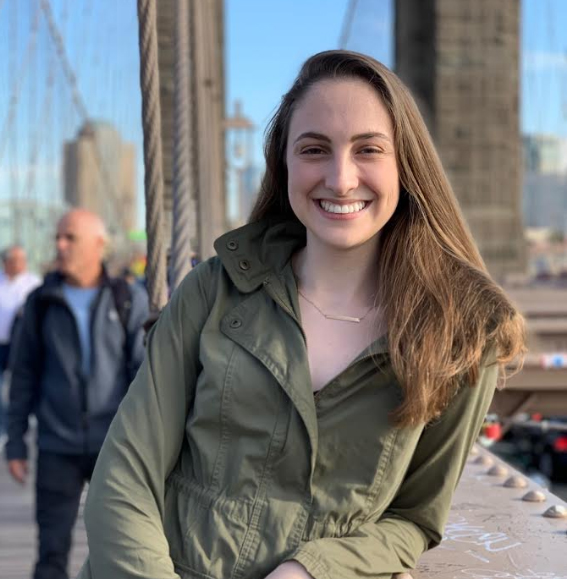Topic Tuesday: Space
 “Taking Up Space” (By: Emily Heard)
“Taking Up Space” (By: Emily Heard)
For many years I believed that taking up space was a privilege I needed to earn. My eating disorder was a way to shrink into the nothingness that I believed I was. I didn’t want to take up space: space in classrooms, space in check books, space in schedules, or even space in other’s minds. I believed that I was unworthy. I was wrong.
Babies aren’t born with the notion that they must confine themselves, therefore somewhere along the way it was ingrained in me. I believe that a lot of this came from the societal expectations of what it means to be a woman. I think of the way I was taught the etiquette required to keep one’s opinions to oneself. I think of how I was taught the importance of keeping my legs closed to maintain modesty while my male counterparts spread their legs. I think of the way my ballet teacher claimed I had potential due to my tall thin physique, and how the smaller I got the more I had. I was told that I was meant to be soft, passive, polite and subordinate. My eating disorder functioned as a way to keep me in line and cope with the fears that I was indeed too much to handle.
As I entered treatment, I watched teens, adults, and elderly women melt themselves into the very frames of the seats they sat in. I realized that they were also afraid of taking up practically any space in this vast world. While I was in inpatient treatment, there was a rule to always keep one foot on the floor. The idea was to keep us grounded and not allow us to fold back into the prisons our minds had created. But it was more than that. Being grounded with open body language allowed us to be present enough to contribute to the conversation, to share our feelings, and to finally take a hacksaw to those bars around us. As I made my way through levels of treatment, both I and women around me took up more space. Taking up space was about more than our weight restoration and how our thighs spilled over our seats; it was about the vibration of our laughter and the energy that pulsed through each room. It was about the conversations where we confronted our deepest wounds and celebrated our greatest accomplishments. Taking up space is about healing and taking up space is hard.
After almost 6 years since first entering treatment, I can say that the work isn’t done. I am still constantly navigating how to take up space in my life and continue to make space for others. I am working on using my voice to advocate for things I care about. I’ve joined councils and applied for positions I never would have thought I could hold. I’ve found a body positive dance community that encourages me to take risks in every room I enter. As I have rebuilt my relationship with movement through space, I have continued to rebuild my relationship with my body. My body takes up space. I take up space. And I have never been so grateful to take up space. I know now that my opinions are worth being heard and that I do not need to apologize for existing. I encourage everyone regardless of eating disorder history or not to take up space in your life. Practice saying no, ask for what you need, and stop prefacing every statement with “just” or “sorry”. You matter and taking up space is not a privilege; it is a right.
About the Author
Emily Heard is a Nashville native who continues to explore how nature and movement can aid in the long term recovery process. She is thankful for support from her loved ones, outpatient and inpatient teams and everyone she meets who adds vibrancy to her life.


Comments are closed.